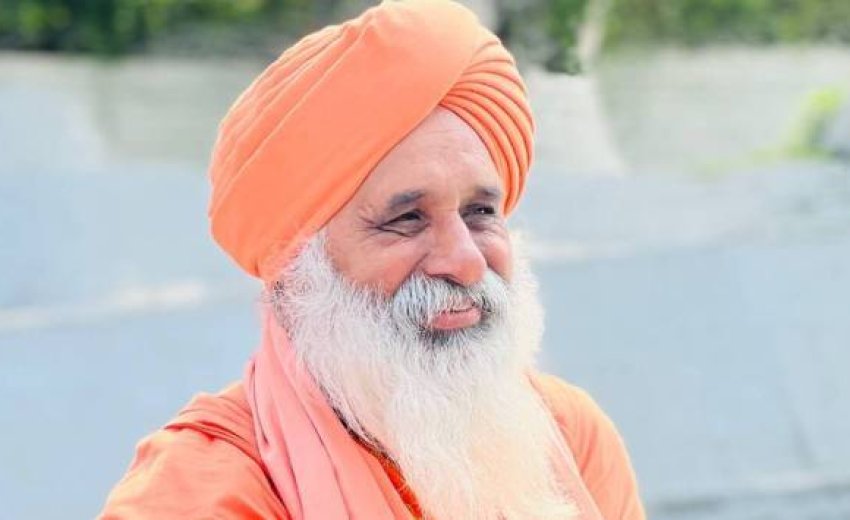One of Balbir Singh Seechewal's cherished verses from the Granth Sahib, the holy book of the Sikh community, praises the natural elements. It states, “The wind is our guru, water is father, and the earth, mother." However, despite the significant increase in agricultural production brought about by the Green Revolution four decades ago, Punjab, which became India's main source of food, is now facing severe depletion and pollution of its once-abundant rivers and underground water sources. This unfortunate situation is a result of the escalating demands for groundwater, as well as the introduction of industrial and agricultural chemicals and untreated waste that end up contaminating the local water sources.
The river Kali Bein
Consider the Kali Bein, a river that stretches for 99 miles (160 km) and holds significant religious importance for the Sikh community, which forms the majority in the state. Unfortunately, over the last few decades, this once revered river has deteriorated into a polluted channel, where the discharge of waste from six towns and over 40 villages has turned it into an unsightly drain. As a result, sections of the river have dried up, leaving nearby farmlands barren and in desperate need of water. Furthermore, the contaminated water has seeped into the groundwater, causing serious health hazards and leading to the spread of lethal diseases.
Noble initiative
In the year 2000, Seechewal a Sikh holy man took on the challenge of cleaning up the polluted river. Inspired by the Sikh tradition of voluntary service called kar sewa, Seechewal and his followers educated local residents about the importance of cleaning the Kali Bein River. They gathered volunteers to physically clean the river and raised funds to acquire the necessary equipment. Their movement gained momentum, with people from over two dozen villages joining in the effort.
Saving Kali Bein
The task at hand was enormous. The volunteers successfully removed water hyacinths and silt from the entire riverbed. They also constructed riverbanks and roads along the river's course. After several unsuccessful appeals to government and municipal bodies to prevent the flow of polluted water into the river, Seechewal initiated a public awareness campaign. The campaign aimed to encourage villagers to dispose of their sewage in alternative locations. Some villages revived traditional methods of waste disposal and treatment, while farmers eagerly sought access to the treated water.
Eventually, a government order was obtained to divert water from a nearby canal. As the riverbed was cleared, natural springs reemerged, and the river gradually began to fill up. To further improve the ecosystem, trees were planted along the riverbanks, and fishing was prohibited to preserve biodiversity.
Kali Bein started flourishing. Now families visit the area for picnics, and during religious festivals, the devout take part in bathing rituals. Seechewal has now shifted his focus to the tanneries and other factories that discharge untreated waste into rivers. He is also leading initiatives to encourage residents and the government to adopt a more systematic approach in cleaning up rivers and creeks throughout the entire state. In an interview in 2008, Seechewal stated, "We have proved that it is possible to restore our rivers to a pristine condition if we all come together. It is time to do that on a bigger scale."
In 2008, TIME Magazine bestowed upon Sant Balbir Singh Seechewal the prestigious title of 'Hero of Environment,' making him not only the sole Indian but also the sole Asian to receive this distinction. Fondly recognized as 'Eco Baba,' Sant Balbir Singh Seechewal has gained immense popularity in India and abroad.
*Based on an article published in TIME on 6th October 2008
